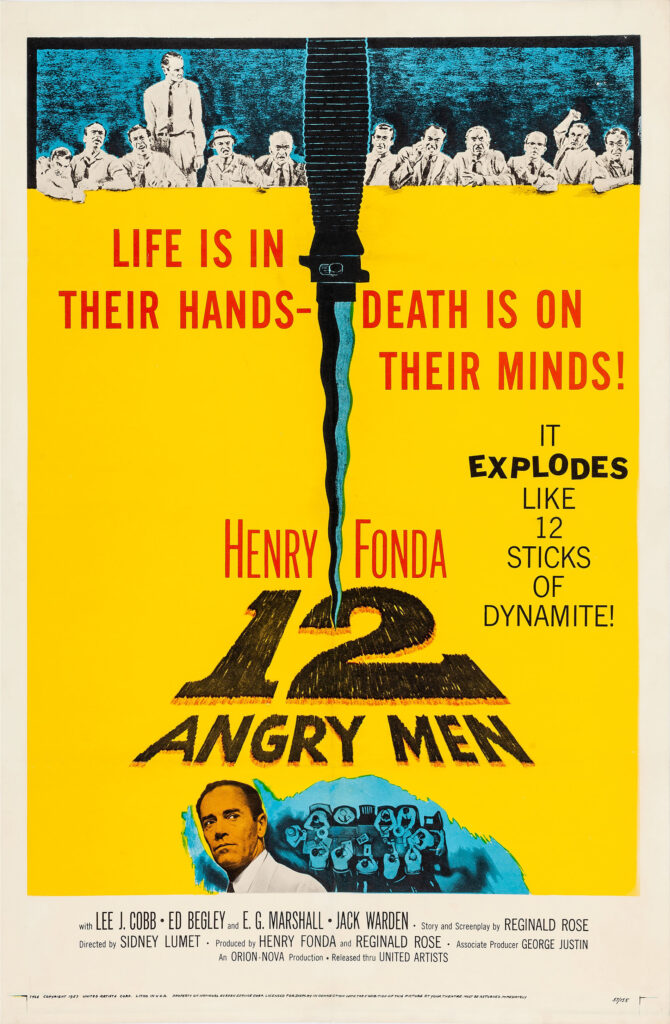
Introduction
“12 Angry Men” is a timeless classic that has stood the test of time and continues to be a favorite among movie buffs. Directed by Sidney Lumet, this film tells the story of twelve jurors who must decide the fate of a young man accused of murdering his father. Lumet’s directing style is unique, and this movie remains one of his most notable works. This essay will explore the characters, themes, and directing style of “12 Angry Men” and evaluate its impact on film history.
Plot Summary
“12 Angry Men” follows twelve jurors who are tasked with deciding the fate of a young man accused of murdering his father. The jurors are initially unanimous in their decision to find the young man guilty, but one juror, played by Henry Fonda, begins to question the evidence and the testimony presented in the trial. As the deliberations continue, each juror’s personality and biases are revealed, and the tension in the room continues to escalate.
Characters
One of the most compelling aspects of “12 Angry Men” is the way in which each character is developed throughout the movie. Each juror is unique, with their own personality and biases that influence their decision-making. Juror 8, played by Henry Fonda, is the protagonist of the film, and he is the only juror who initially believes in the defendant’s innocence. Other jurors, such as Juror 3 and Juror 10, are initially convinced of the defendant’s guilt and struggle to change their minds. The characters in “12 Angry Men” are relatable and flawed, making them realistic and human.
Themes
“12 Angry Men” explores several themes, including justice and the American legal system, prejudice and stereotypes, and the power of persuasion. The movie portrays the legal system as being imperfect, with jurors who are influenced by their biases and emotions. The theme of prejudice and stereotypes is also prominent in the film, with some jurors believing the defendant is guilty simply because of his background and ethnicity. Finally, the power of persuasion is explored, as Juror 8 uses his logic and reasoning to convince the other jurors of the defendant’s innocence.
Directing Style
Lumet’s directing style in “12 Angry Men” is notable for its use of long takes and deep focus, which creates a sense of claustrophobia and tension. The camera is often placed at eye level, giving the audience the feeling that they are in the room with the jurors. Lumet’s use of close-ups and extreme close-ups on the characters’ faces allows the audience to see their emotions and reactions up close. This directing style enhances the themes and narrative of the movie, creating a sense of intimacy and urgency.
Conclusion
In conclusion, “12 Angry Men” is a classic film that remains as relevant today as it was when it was released over 60 years ago. Sidney Lumet’s directing style is masterful, and the film’s exploration of themes such as the American legal system, prejudice, and communication are still relevant today. The characters are well-developed, and the performances by the actors are excellent. The film also offers a powerful message about the importance of rational thinking and the dangers of groupthink. Overall, “12 Angry Men” is a thought-provoking film that deserves its place in the canon of American cinema.
